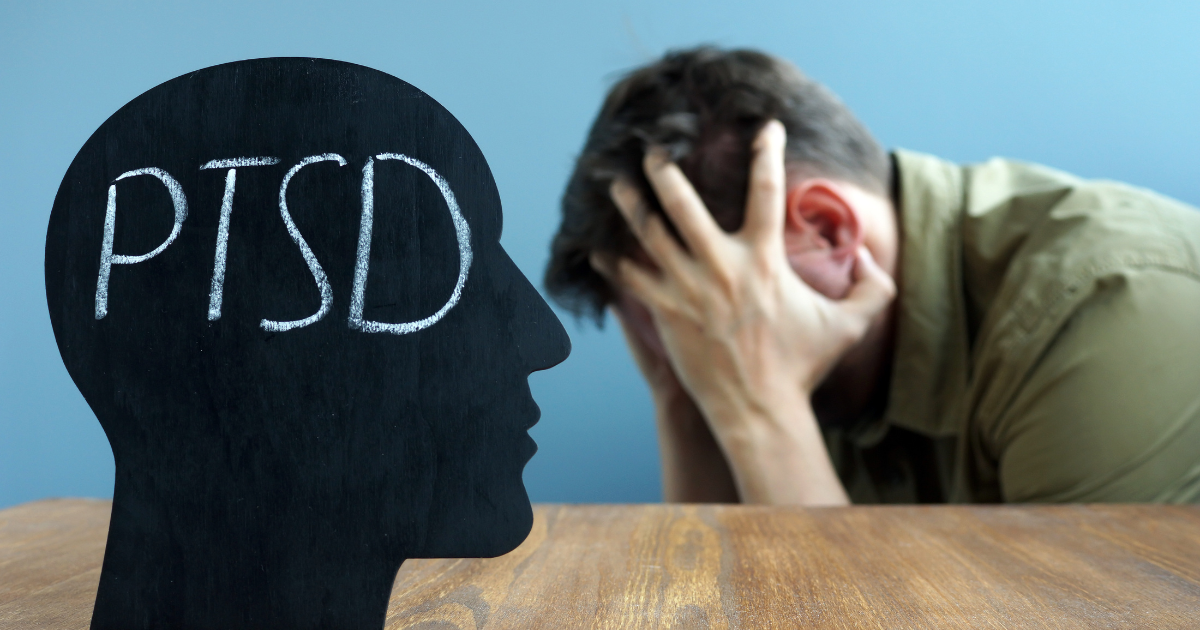Trigger warning: This article contains mentions of sexual assault, emotional abuse, and bullying.
A traumatic event can have a lasting impact on a man’s life. It can make it challenging to socialise or get into relationships. It can impair one’s ability to function as a member of society. Trauma can also affect a man’s sexual functions. It can lead to issues such as difficulties with intimacy, loss of sex drive, erectile dysfunction, or premature ejaculation. Let’s learn more about the common types of trauma and what you can do to overcome them.
Physical trauma
Physical trauma is a serious injury to the body. It can be because of an accident, violence, impact, natural accident, or sports injury. Physical trauma often results in wounds, broken bones, or damage to the internal organs.
- Genital injuries – injuries affecting the pelvic region can result in impaired sexual functions. Trauma in the perineum or the area between the anus and the scrotum can lead to erectile dysfunction. Perineal trauma damages nerves and reduces sensation in the penis. Such injuries can also damage blood vessels and cause poor blood flow to the penis.
- Spinal cord injuries – injuries to the spinal cord and the nervous system can lead to erectile dysfunction. The nervous system is responsible for interpreting stimuli from the environment, including the sensations felt during sexual intercourse. Damages to the nervous system can lead to loss of sensation, making it difficult to achieve an erection.
- Brain injury – brain injury can be caused by a fall, assault, blunt force, violence, or vehicular accident. This type of injury can impair the pituitary gland. When this happens, it might result in a decrease in hormone production, including testosterone. Low testosterone levels can negatively affect sex drive, energy, and the quality of erections.
- Alcohol and drug abuse – Long-term alcohol and drug abuse can damage the nervous and circulatory systems. These damages can result in loss of sensation and poor blood flow and can cause ED.
Psychological and emotional trauma
Psychological trauma refers to the mind’s response to a distressing or painful event. Psychological trauma can be caused by:
- Sexual abuse – sexual abuse, whether it happened during childhood or adulthood, can cause feelings of shame and fear. It can cause performance anxiety. It can also lead to avoidance of intimacy for the fear of reliving the traumatising event.
- Emotional abuse – growing up in an abusive, critical, or neglectful environment can lead to insecurities. These insecurities can alter one’s view about relationships and sex.

- PTSD – getting involved in a violent conflict as a member of the armed forces can result in PTSD. PTSD can also stem from physical assault or witnessing a violent crime. Those with PTSD might avoid situations that remind them of traumatic events, including sexual stimuli. Certain PTSD medications might also cause erectile dysfunction as a side effect.
- Religious or cultural shame – men raised in an overly religious or conservative environment might view sex, especially pre-marital sex, as something sinful or shameful. As such, engaging in sexual activities might arouse feelings of guilt, leading to erectile dysfunction. They might also view sex as taboo and rush the act, leading to premature ejaculation.
Relationship and social trauma
Relationship trauma refers to the psychological impact of an abusive relationship. Relationship trauma can be physical, emotional, or psychological in nature.
- Betrayal – betrayal trauma can be caused by abandonment, cheating, or divorce. A man might blame himself as the cause of the failed relationship. This might cause trust issues. It might also cause anxiety or fear of intimacy.
- Toxic relationships – men who just came from a toxic or abusive relationship can result in low self-esteem. It can also cause sexual anxiety which can lead to sexual dysfunctions.
- Bullying – past experiences involving bullying or body shaming can cause insecurities around sex and relationships in general. Bullying can centre on a man’s height, weight, body type, looks, or masculinity. Body shaming can make a man ashamed of his appearance and the idea of being naked with a partner can result in erectile dysfunction.
- Rejection – rejection because of physical appearance or past sexual performance can cause feelings of anxiety during intimate moments. A negative experience, like failing to achieve an erection or losing an erection during sexual intercourse, can also cause premature ejaculation or erectile dysfunction.

Conclusion
Trauma, whether it’s psychological, emotional, or physical, can have drastic effects on a man’s sexual functions. It can lead to sexual dysfunctions, like erectile dysfunction or premature ejaculation.
If you have experienced trauma and believe that it is negatively affecting your sex life, be sure to get professional help. Medication or therapy can help you cope with a trauma.
If possible, take advantage of a custom treatment for ED and PE as this type of treatment focuses not just on treating your PE or ED but on other underlying health issues you may have — be it physical or psychological.
Book a FREE consultation with Men’s Health Clinic (MHC) for a comprehensive treatment plan. MHC is a telehealth clinic specialising in treating male sexual dysfunctions through a multidisciplinary approach. We are partnered with licensed doctors, nutrition experts, and mental health professionals who can help address your sexual health conditions extensively.
While you cannot erase a traumatic event from your life, you can make sure that it will not cast a shadow in your life one step at a time.




